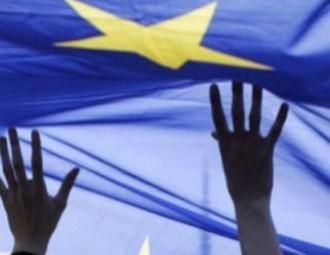Crimea is to hold the referendum on March 16

However, only Russian authorities recognize the referendum, whereas the international community considers it to be illegal.
The Crimean authorities have said they have enough funds to finance the forthcoming referendum on the autonomy’s status on a full scale.
“The estimate is being clarified. The money has been included in the budget. I am not going to give you the exact sum but I am absolutely sure that it will be enough,” Vladimir Konstantinov, the Crimean parliament speaker, said on Sunday, March 9, adding Crimea would go ahead with the March 16 referendum despite that fact that the interim authorities in Kiev had blocked the accounts of the Crimean Treasury.
“We have our own finances, our won budget and taxes, which will be enough. We are actively receiving help from Russian regions. The money is coming, and we have no problems,” Konstantinov explained.
The Crimean parliament speaker also hopes that Crimea will remain a parliamentary republic if it becomes part of Russia.
He added that the president’s office was currently operating in Crimea. “We hope to preserve it too,” Konstantinov said, noting that all state institutions - the state border service, the army, the fleet and the security service - would report to Russia in case Crimea became its integral part.
A referendum on Crimea’s future status will take place on March 16, two weeks earlier than initially planned, ITAR-TASS recalls. For a week, the activists will be focused on collecting signatures in favour of a referendum. Tens of thousands signatures have already been collected.
Twenty-seven territorial constituencies will be set up in Crimea for a referendum on the peninsula’s status slated for March 16, Mikhail Malyshev, the head of the committee in charge of holding the referendum, told ITAR-TASS. This decision was made at the committee’s meeting, Malyshev said.
-
03.01
-
07.10
-
22.09
-
17.08
-
12.08
-
30.09










































